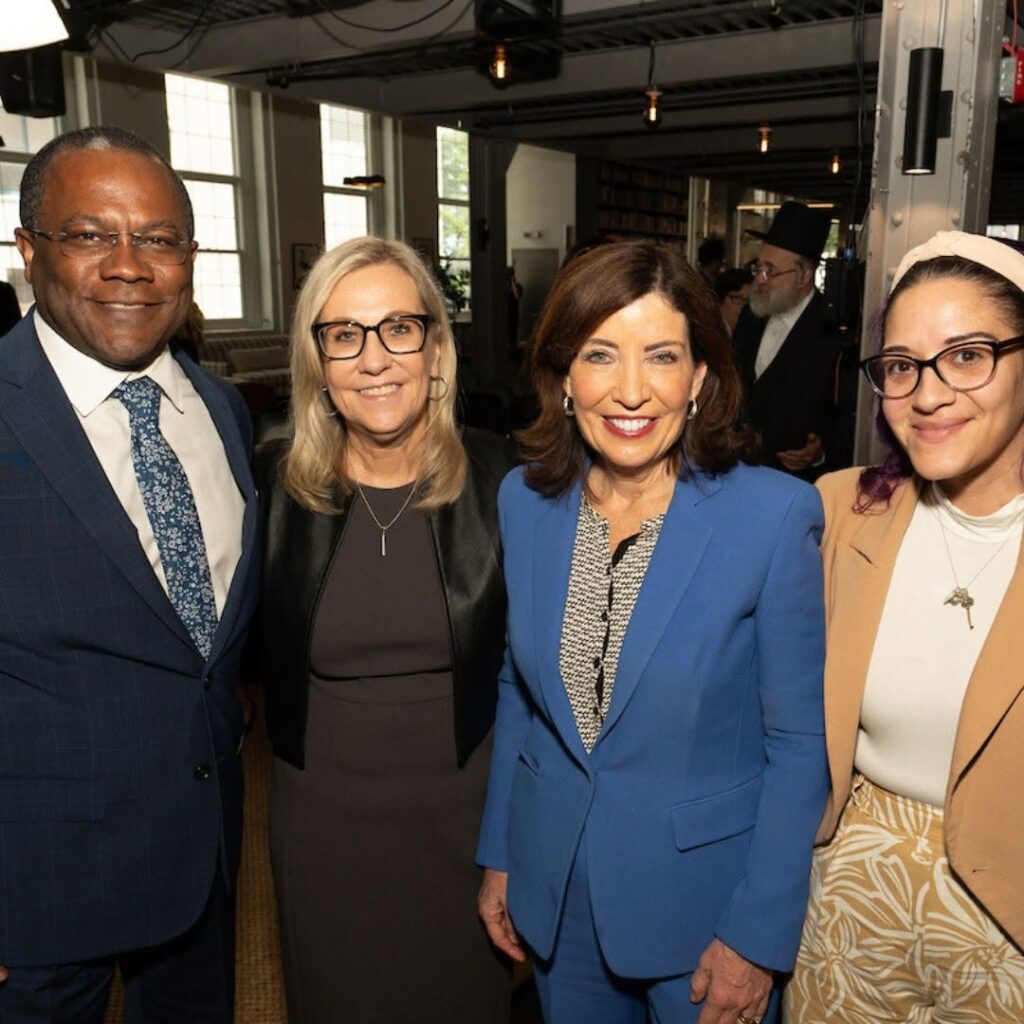
(June 6, 2025) New York State Governor Kathy Hochul has announced a second round of Mid Hudson Momentum Fund (MHMF) Awards supporting new housing developments across the state, half of which are in Westchester County.
Partners of Welcome Home Westchester applauded Governor Hochul’s efforts to continue prioritizing funding for municipalities certified through the state’s Pro-Housing Community Program, one of the campaign’s Five in 2025 policy agenda items. This agenda encourages each village, town and city in Westchester County to adopt at least one pro-housing initiative or plan this year to help address the housing shortage.
“Welcome Home Westchester is thrilled with the Governor’s announcement of the Mid-Hudson Momentum Fund awards — critical investments that will expand access to housing and affordable housing, improve infrastructure and drive equitable development,” stated Jan Fisher, executive director of Nonprofit Westchester and Welcome Home Westchester partner. These funds will especially benefit Westchester communities such as Mount Vernon, Yonkers, New Rochelle and Port Chester.”
The $60 million-plus awarded through the MHMF this round will support 10 projects total, with more than half of the funding allotted to Westchester developments.
“We celebrate and thank Governor Hochul for announcing the second round of Mid-Hudson Momentum Fund awards to fund more affordable housing in our Westchester County community! Everyone deserves a home of their own,” said Ron Abad, CEO of Community Housing Innovations and a member of Welcome Home Westchester’s Policy Advisory Committee, who was on-hand for the announcement, along with Fisher.
Westchester developments that received funding include:
- Westchester Crossing (Port Chester): $10 million toward a mixed-used development with 975 units of residential and senior living, including 87 affordable units, at the former United Hospital site. The project also includes new water, sewer and stormwater management systems, as well as roads and sidewalks.
- Bridgewater North at Ludlow Station (Yonkers): $7.5 million toward a transit-oriented, mixed-use development with 208 new apartments, including 21 affordable apartments, ground floor retail, a spa and parking garage. The project also includes a revitalization of O’Boyle Park and a new Bridge Street Park and Promenade.
- QWest (Mount Vernon): $5 million toward two new structures replacing abandoned buildings that will contain residential units and commercial space within the city’s transit-oriented development zone. All 228 units will be affordable.
- Stella Phase II (New Rochelle): $5 million toward a mixed-used development near the city’s Metro North station, including 126 affordable condominium units and the city’s first affordable dental clinic. The fully electric, LEED-certified project will be the County’s first high-rise affordable condominium in decades.
- The Abbey on Park (Yonkers): $3.75 million toward a mixed-incoming housing development with 81 affordable apartments across three buildings. It will also include parking garage enhancements, accessibility upgrades, drainage improvements and green renewable technology integration.
Westchester County Executive Ken Jenkins said in a statement from the Governor’s office: “I want to thank Governor Hochul for her leadership in addressing the housing crisis across New York State. Here in Westchester County, we are working hard to build more affordable housing, and the Momentum Fund investment is a game-changer in increasing the number of people who will have a warm place to call home. This funding will help develop 2,000 new affordable housing units in the Hudson Valley. It’s not just about constructing buildings—it’s about creating vibrant, equitable communities where everyone has the opportunity to thrive, now and for generations to come.”
Yonkers Mayor Mike Spano also weighed in: “Thank you to Governor Hochul and the State Delegation for tackling housing and making it a priority, especially here in Yonkers. As Mayor of the third largest city in New York State, the importance of transit oriented development allows our residents and families accessibility to an even greater quality of life.”